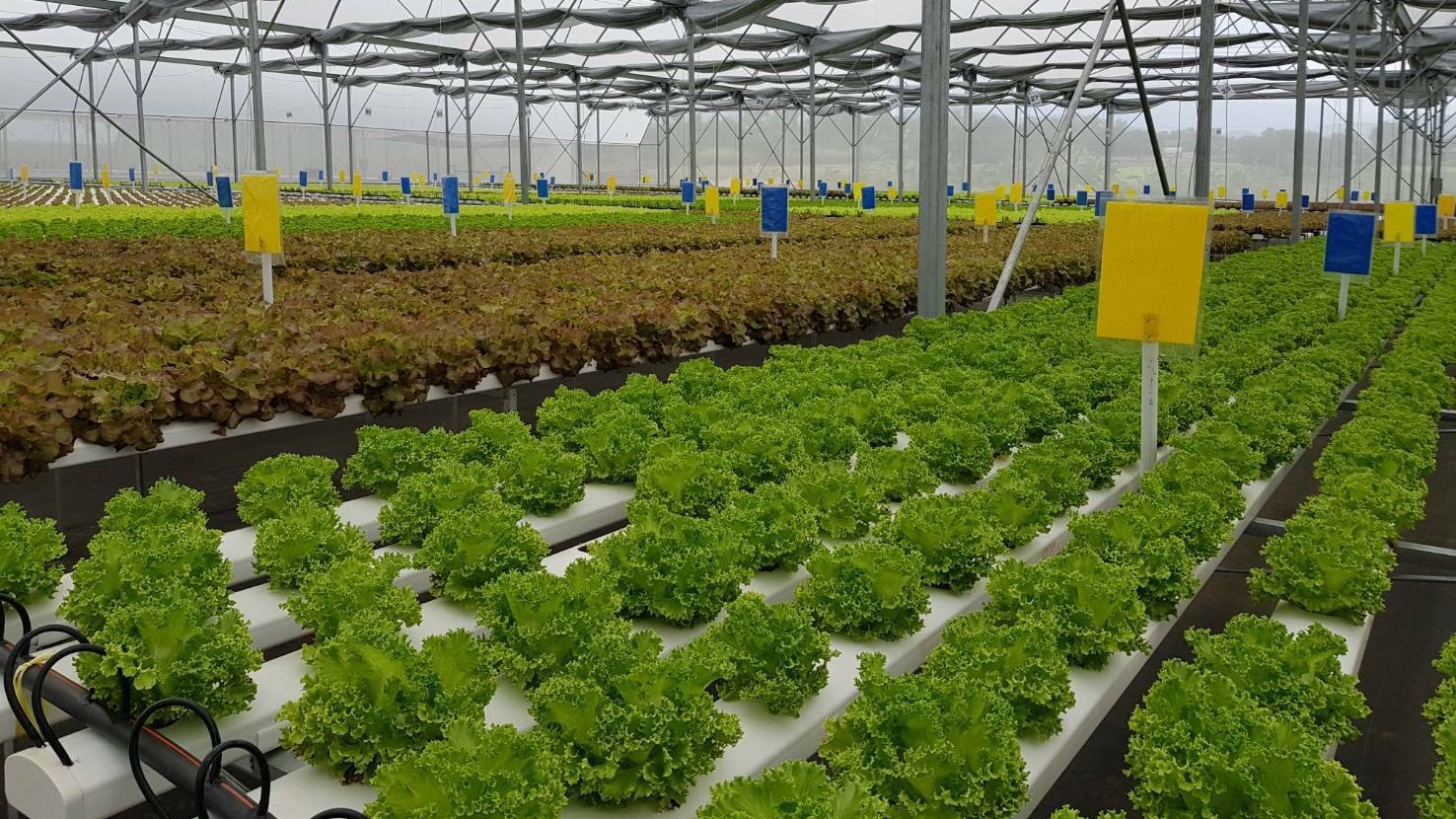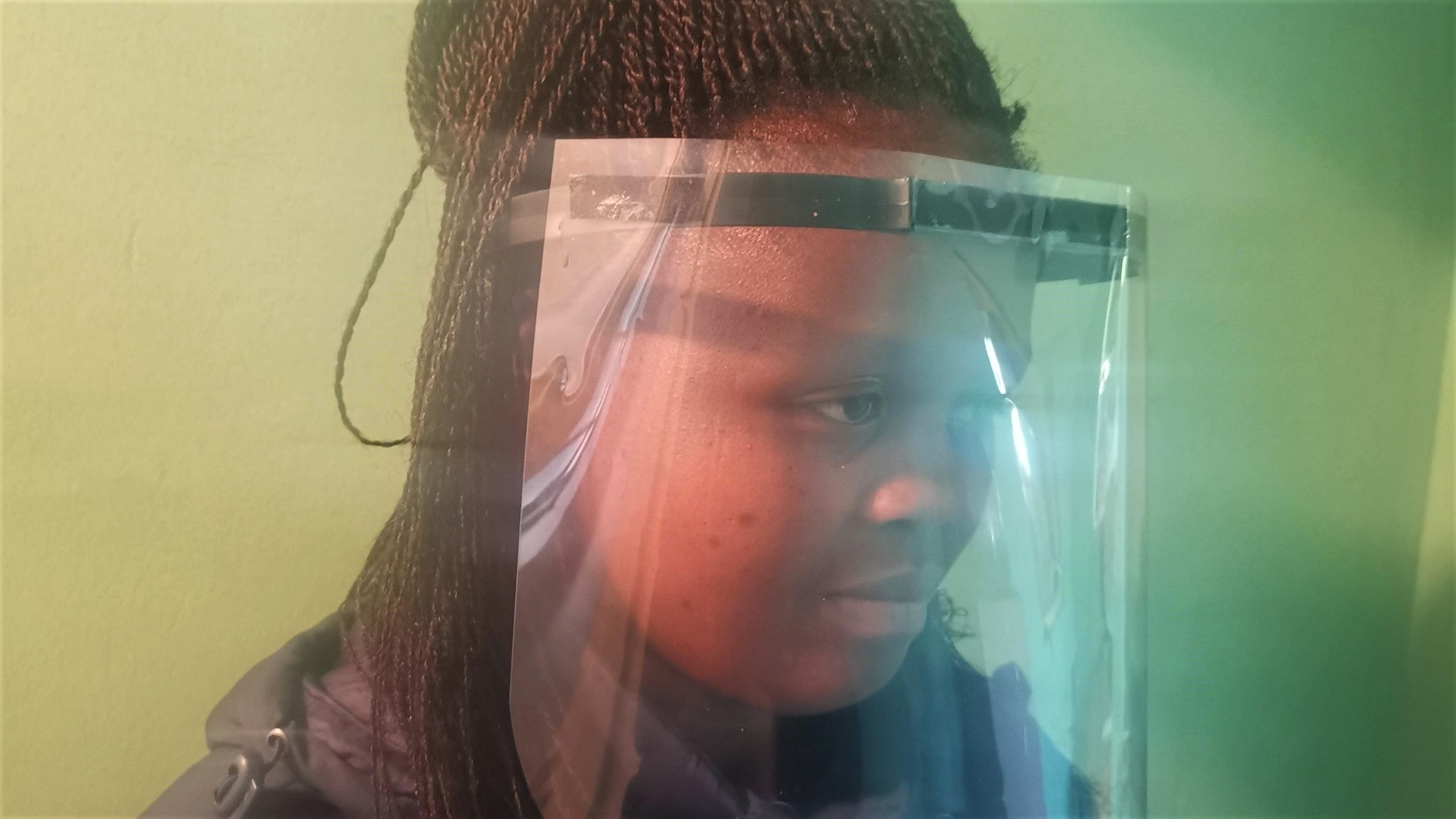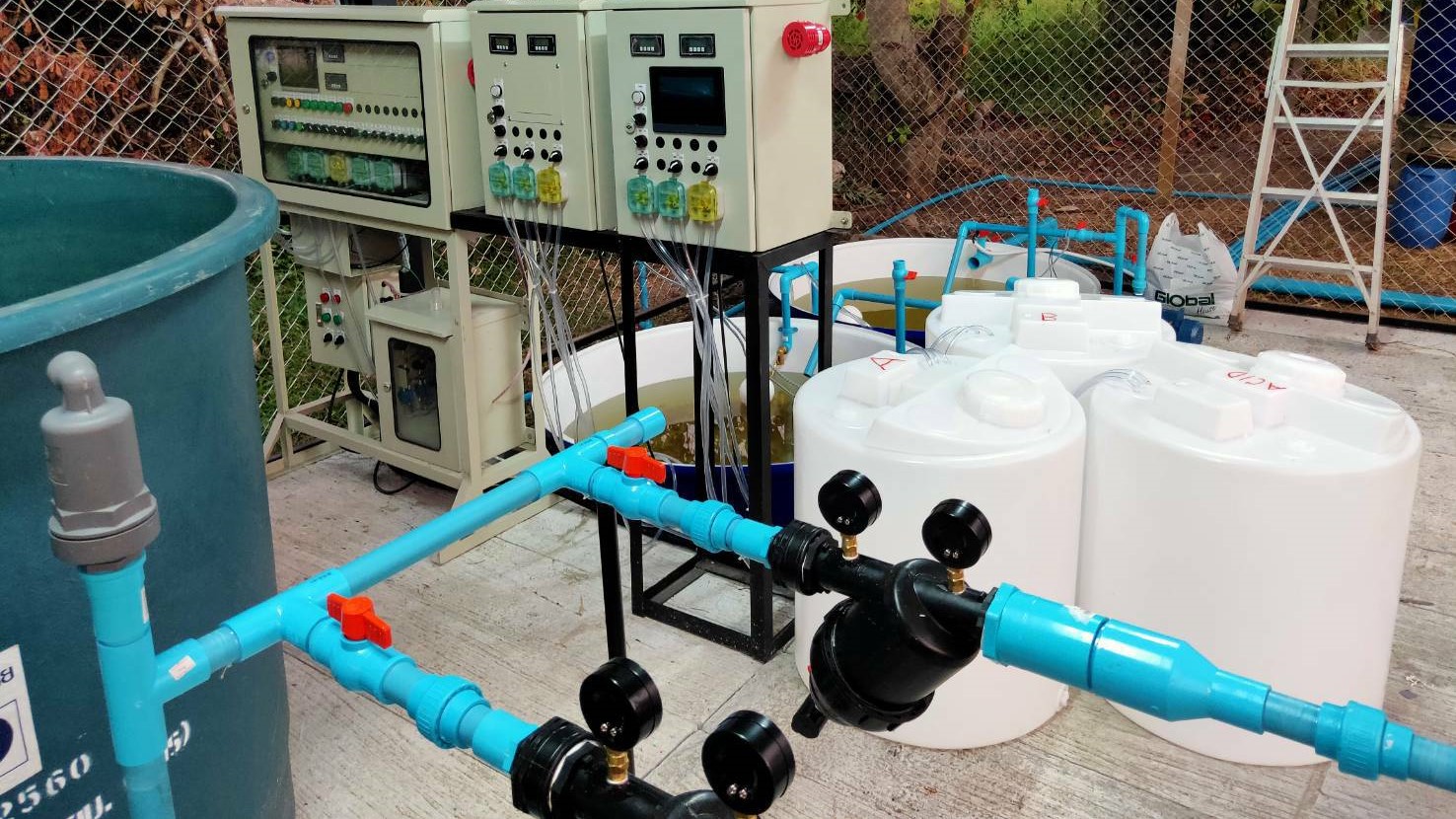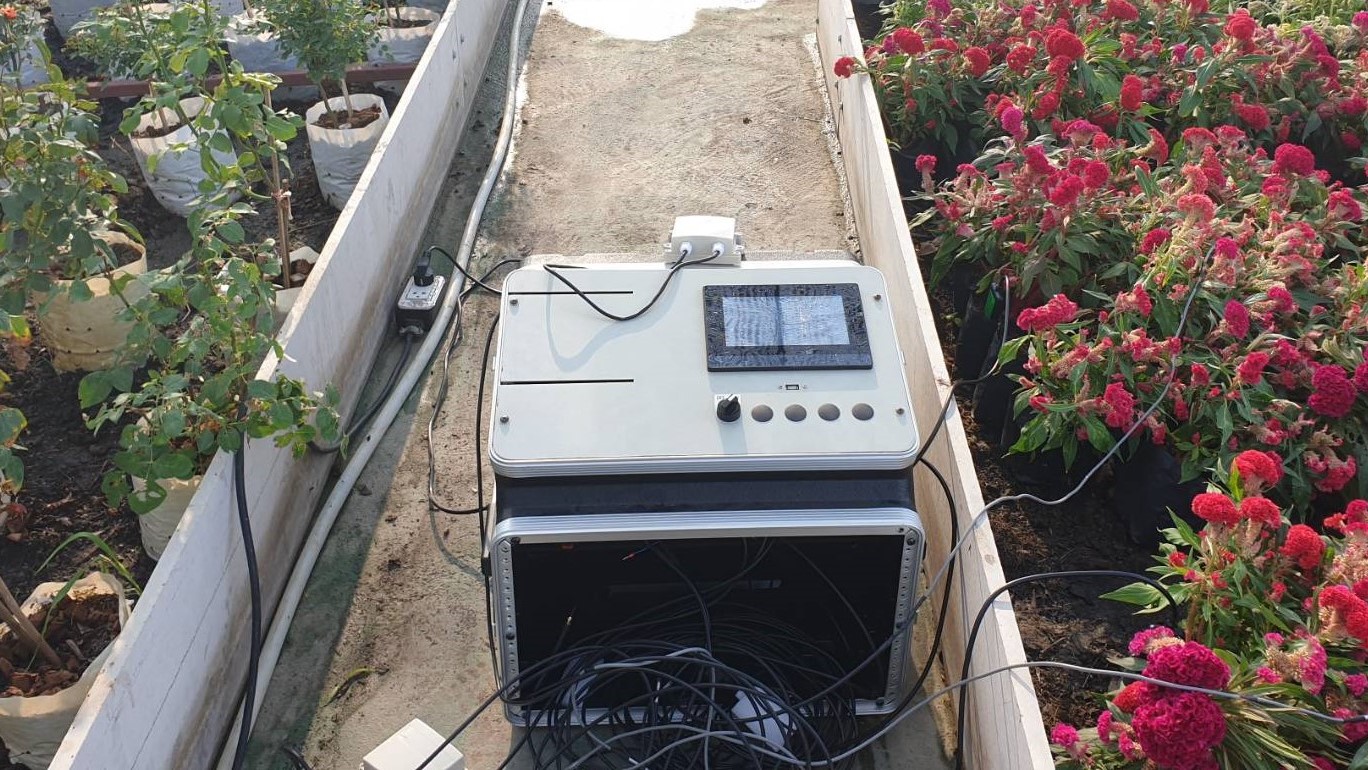

Cleantech innovators take on COVID-19
02 July 2020 Leisa Burrell
by Leisa Burrell
The global COVID-19 pandemic has claimed hundreds of thousands of lives around the world. As the pandemic unfolds, there is no doubt that more lives will be lost and there will continue to be wider socio-economic impacts for some time to come.
Government-instigated COVID-responses, such as lockdowns and social distancing measures, have turned a multitude of daily, routine tasks into fraught and, at times, complex interactions, presenting challenges for those businesses that rely on face-to-face interactions, or for those that now require additional protection, such as those in healthcare sectors.
Yet, there are some silver linings; some start-ups and incubators have used these measures and the unique conditions precipitated by COVID-19 as a springboard to develop innovative, commercially viable, localized solutions, allowing them the opportunity to tap into new opportunities and markets.
As countries start to envisage their post-pandemic landscape, with calls for green stimulus and technology, science and innovation-driven solutions growing louder, it is these enterprises that, by addressing immediate real world issues such as the pandemic and the escalating climate change crisis, can be a central catalyst in this recovery.


SMEs as a lynchpin for COVID-19 recovery
According to the International Labour Organization (ILO), small economic units with up to 49 employees account for 70 per cent of global employment, yet small and medium-sized enterprises (SMEs) and start-ups are often not given the opportunity to transform their innovations into viable enterprises that attract investments, so as to bring them to scale and have the environmentally and socially transformative impact that the world desperately needs.
This is where the Global Cleantech Innovation Programme (GCIP), implemented by the United Nations Industrial Development Organization (UNIDO) and funded by the Global Environment Facility (GEF) comes in.
“The GCIP supports entrepreneurs developing disruptive early-stage cleantech innovations that address the climate change and energy challenges and helps transform them into fast-growing enterprises,” explains Alois Mhlanga, Chief of UNIDO’s Climate Technology and Innovations Division.
“Locally nuanced solutions led by innovative start-ups and SMEs can help to create resilient, locally based economies. Particularly in developing countries, they can act to help to address the deficit of modern energy services, which is a major barrier to social and economic development.”
A key component of the GCIP is the annual competition-based Accelerator, which identifies and supports the most promising cleantech innovations towards commercialization. A selected number of start-ups in a GCIP partner country participate in a rigorous, competitive national acceleration programme that trains, mentors, promotes and connects them to potential investors, customers and partners.
“The GCIP is currently the largest cleantech acceleration programme in the developing world,” explained Tareq Emtairah, Director of UNIDO’s Energy Department. “It has been implemented in Armenia, India, Malaysia, and Thailand, and, as of 2020, it is continuing its operations in Cambodia, Indonesia, Kazakhstan, Moldova, Morocco, Nigeria, South Africa, Turkey, Ukraine and Uruguay.”
To date, the GCIP programme has accelerated over 1,300 cleantech start-ups across nine countries in diverse categories, ranging from renewable energy, energy efficiency, waste beneficiation, water efficiency, green buildings, sustainable transport, and advance materials and chemicals.
GCIP alumni take on COVID-19
Speaking about how GCIP alumni has reacted to COVID, UNIDO sustainable energy expert, Sun Young Suh, said that “many of GCIP alumni enterprises are actively addressing COVID-19 by leveraging constraints into new business opportunities adjacent to their existing operations, while others have engaged in co-innovation to develop new products to address the specific needs of developing countries arising from COVID-19 related measures. Some have even seen an increase in demand for their services.”
“As GCIP’s focus is on enhancing private sector competitiveness to deliver environmental and social benefits, GCIP alumni enterprises are well-equipped to respond to global crisis such as COVID-19,” she said.
In spite of the difficulties in the face of the global pandemic, GCIP’s alumni from around the world have risen to the COVID-19 challenge.
Morocco: drones, unmanned aerial vehicles and protective visors
Two alumni of the Moroccan GCIP, Farasha Systems and Shems for Lighting, have redirected their efforts to assist with the COVID-19 pandemic.
Farasha is at the forefront of the Fourth Industrial Revolution, providing maintenance services for energy infrastructures using unmanned aerial vehicles (UAEs) and artificial intelligence (AI). The start-up offers intelligent and predictive maintenance for industrial and renewable installations.
In response to COVID-19, the company has mobilized its resources to develop a spraying system fitted to a drone, which enables the disinfection of public spaces. In addition, the company has developed a thermal drone that can detect the temperature of people without approaching them.
Shems for Lighting has reoriented its solar lamp production workshop into a workspace for manufacturing protective visors. To date, the start-up has produced 6,000 visors that have been distributed to hospitals and law enforcement agencies.
The company is also developing a system of infrared lamps for the disinfection of public spaces and is also developing a solar-powered thermal camera system for monitoring body temperature.
South Africa: female entrepreneurs joining forces
Euodia Naanyane-Bouwer was the overall runner-up and winner of both the best women-led team and social impact innovation awards in the 2017 South African GCIP. She also received a special commendation for social impact at the GCIP Global Forum held in Los Angeles in January-February 2018. Her company, Gracious Nubian, is a social enterprise based in Bloemfontein in the Free State Province. The company designs, develops and manufactures an innovative washable sanitary pad that can be reused for up to two years.
Naanyane-Bouwer’s product is aimed at addressing both the high cost of sanitary pads – which keeps two-thirds of girls in rural areas out of school during menstruation – and the impact of disposable sanitary pads on landfill sites and water treatment plants. It is currently mainly distributed to girls in poor rural schools in the province through corporate social investment programmes and other forms of support.
Based on its established expertise and track record in the medical materials industry, Gracious Nubian joined forces to manufacture medical-grade face masks in partnership with the Central University of Technology, which is sponsoring the medical material, and Med-FM, a medical radio station, which is doing the marketing and distribution of the masks.
Capitalizing on the GCIP alumni network in South Africa, Naanyane-Bouwer will be working with Sandiswa Qayi, the 2016 GCIP-SA youth-led team winner, to provide face shields and face masks to impoverished rural schools in the Free State Province. Qayi’s company, AET Africa, manufactures the Hot Spot, a geyser sleeve that can be retrofitted over any standard geyser element to circulate water from the bottom to the top, providing hot water within 30 minutes, achieving significant energy savings. She repurposed an assembly plant in Dimbaza in the Eastern Cape to manufacture face shields and face masks for COVID-19. Current clients for these products include individuals, corporates and one government department.
With the reopening of schools in South Africa expected soon, the two companies will be utilizing Naanyane-Bouwer’s existing networks in the Free State Province to distribute face shields and masks to pupils in rural schools, together with the sanitary pads.


Aqueous ozone an unlikely alternative to sanitizers
Andre Nel of Eco-V was selected as one of two GCIP-SA runner-up teams in 2015 for the innovative GreenTower Microgrids, which improves water and energy security through renewable hybrid solar energy, treated borehole water and "internet of things" optimization software.
In March 2020, a Royal Academy of Engineering grant was awarded to Eco-V for a GreenTower Microgrid pilot for schools. The project is undertaken in a partnership between Eco-V, Tshwane University of Technology and Coventry University, and will provide solar-powered and ozone-treated borehole water for sanitation.
In regards to fighting COVID-19, the company has decided to use aqueous ozone, which can be used as a sustainable alternative to sanitizers. Ozone dissolved in water is a safe and effective disinfectant capable of killing viruses when sprayed onto surfaces and can be easily created from the air using electricity. Thus, the company plans on applying ozone for use in sanitization for hand washing and for disinfecting classrooms and personal protective equipmentto address COVID-19. The ozone sanitizer will be tested to see if it is effective in sanitizing surfaces infected with COVID-19.

Thailand: female entrepreneurs unite to develop eco-friendly protective face masks
Tom Casava Ltd. (GCIP alumni 2016) utilizes waste cassava stumps from cassava plantations by converting them into high-value and high-price activated carbon for industrial, agriculture, household and health applications.
PETSMILE (GCIP alumni 2019) specializes in manufacturing absorbent pads and air purifiers, whilst Fang Thai Factory Ltd. from GCIP’s 2017 alumni produces pulp from rice straw, which is used for eco-friendly food packaging, utilizing innovative non-toxic processes.
The three start-up founders met through the GCIP Programme in 2019, and have reunited in response to COVID-19 to collaborate in the development of a high-quality face mask that aims to provide the highest level of protection that is also environmentally friendly.
Tom Casava is providing fully biodegradable air filters with micro-porous activated carbon prepared from cassava root that enable both air purification and the removal of harmful particles. Fang Thai Factory is contributing pure-grade microcrystalline cellulose from rice straw that offers cross-contamination reduction properties by reacting with toxic proteins such as secretions, and PETSMILE is contributing its expertise in manufacturing absorbent adult sanitary pads and air purifiers.
The trio is in the process of getting the licensing from the Food and Drug Administration before starting production and sale.
Eco & Smart Greenhouse: “Grow from home”
The Thai company, Eco & Smart Greenhouse, is a manufacturer of climate control, irrigation and fertilization systems, as well as solar and energy-saving products. The company describes its technology as simple to use, applying sensor technologies to modern greenhouses enabling their customers with the option to monitor and control their greenhouse systems from home via the internet and mobile phone. In addition, the company has developed a device to link the greenhouse with the company’s climate controllers, which can also control the application of fertilizers.
The company’s solution also allows farmers to grow their produce without the need to be physically present at the farm. Trouble-shooting and customer support can also be provided by remote computer, with Eco & Smart Greenhouse staff able to virtually meet with their customers via Zoom.
The company has experienced an uptick in business since the pandemic started, as many new customers decided that they wanted to grow their own food. In response, the company has had to invest more in its network to support increased demand.


Pakistan: Using nanotechnology to develop face masks in the first line of defence: nano fibre-based N-95 MASK
As the coronavirus pervades communities around the globe, face masks have emerged as the first line of defence. Though a variety of them are available in the market, those such as the N-95, which is known for its high-level airborne particle filtration capability, are short in supply – besides being expensive.
With this in mind, a team of innovators at NanoClo, which was a semi-finalist of the GCIP Accelerator in 2016, set out to develop a mask that they claim can substitute for the N95 masks. The difference lies in the material being used – and the price. “We are using nanofibre membranes for filtration in the face mask,” said Prof Zeeshan Khatri of NanoClo. Professor Khatri has been researching nanotechnology with his team since 2013. “It can filter up to 95 per cent of bacteria or viruses and prevents potential viral transmission.”
NanoClo, has sold more than 13,000 masks, mostly to health practitioners, in just a month after launching this product. The current daily production capacity is 1,000 masks, though they plan to increase it to 5,000 soon.

GCIP “disruptors” taking on the post-COVID and climate change challenge in frontier markets
The aftershocks from COVID-19 will continue to be felt for some time, but this rapid and mass social adjustment around the world, along with a multitude of COVID-instigated innovations, has also revealed to us all a glimpse of what is possible if cleantech innovation and cooperation are given precedence in the face of the escalating climate crisis.
“GCIP is designed to respond to the increasing global demand for environmental sustainability, climate action, and to address the barriers faced by SMEs in transforming their cleantech innovations into market ready solutions. To this end,” explained UNIDO’s Mhlanga, “GCIP’s expanded approach shall also encompass climate change adaptation and will help to support SMEs that provide technologies and services that increase climate resilience in frontier markets.”
“By their very nature, entrepreneurs are disruptors who are able to turn a challenge into a business opportunity,” said Mhlanga. “I believe that the GCIP alumni’s response to COVID-19 is testament to their dynamism and to the programme itself. These ingredients will be key as we go into a post-COVID future, where addressing and adapting to climate change will only become more critical.”
For further information, contact:
Gerswynn McKuur
GCIP Programme Coordinator
Find more Cleantech news here.